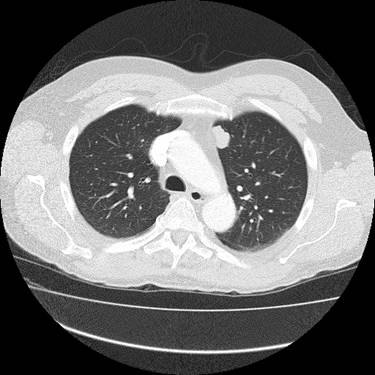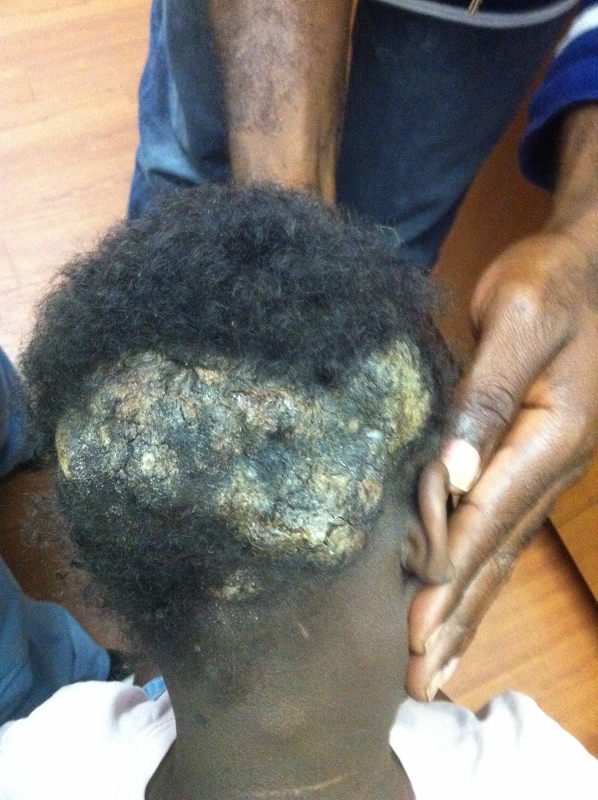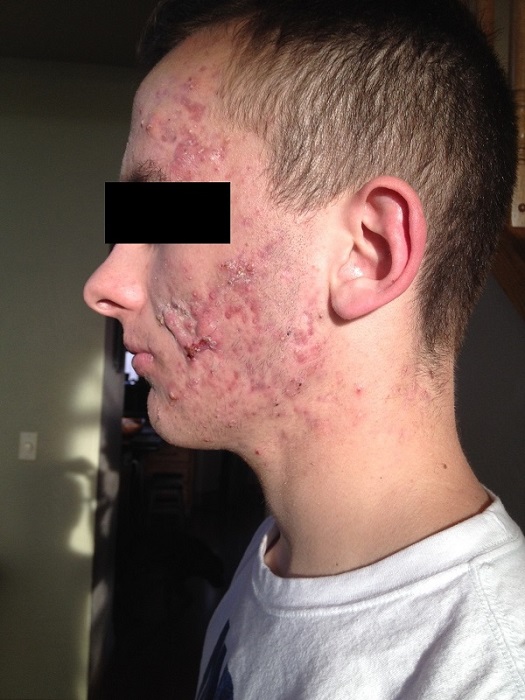CORRECT DIAGNOSIS:
Metastatic Basal Cell Carcinoma
DISCUSSION:
Metastatic Basal Cell Carcinoma is a rare diagnosis with a rate of 0.0028 to 0.5%. The majority of the primary sites involve the head and neck and the most common sites of metastasis in descending order are the regional lymph nodes, lung, bone, and skin. The average age of primary onset is 45 years with a nine-year median interval to metastasis. Risk factors include previous radiation, location on the head and neck, multiple recurrences, multiple primary tumors, large tumor depth, invasion of perineural space and blood vessels, fair skin, and male gender. Treatment modalities include surgery, chemotherapy, radiation, and a newer agent Vismodegib. Vismodegib is a first in class small-molecule inhibitor of the hedgehog pathway recently approved by the FDA. In a phase 2 study of patients with tumors that are not amenable to surgery, where surgery would be grossly disfiguring or those who have metastatic disease, it has shown encouraging response rate of 30% and a median progression-free survival of 9.5 months.
TREATMENT:
Vismodegib and close follow up.
REFERENCES:
Malone, J. P., Fedok, F. G., Belchis, D. A., & Maloney, M. E. (2000). Basal cell carcinoma metastatic to the parotid: Report of a new case and review of the literature. Ear, Nose & Throat Journal, 79(8), 511-515.
Von Domarus, H., & Stevens, P. J. (1984). Metastatic basal cell carcinoma: Report of five cases and review of 170 cases in the literature. Journal of the American Academy of Dermatology, 10(6), 1043-1060. https://doi.org/10.1016/S0190-9622(84)70040-8
Boswell, J. S., Flam, M. S., Tashjian, D. N., & Tschang, T. P. (2006). Basal cell carcinoma metastatic to cervical lymph nodes and lungs. Dermatology Online Journal, 12(6), 9.
Sekulic, A., Migden, M. R., Oro, A. E., et al. (2012). Efficacy and safety of Vismodegib in advanced basal-cell carcinoma. The New England Journal of Medicine, 366(23), 2171-2179. https://doi.org/10.1056/NEJMoa1112031




